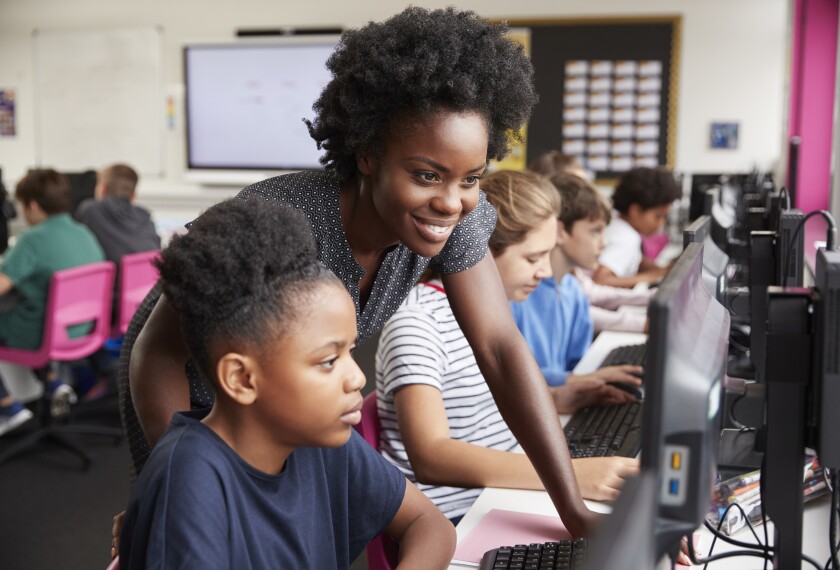Many teen girls say they spend much more time on social media—especially TikTok—than they intend to, interfering with their sleep, and in some cases their mental health, according to a survey released March 30 by Common Sense Media, a research and advocacy organization that studies the impact of technology on young people.
Almost half of teenage girls surveyed said they are addicted to TikTok or spend more time on the social media video platform than they intend to at least once a week. About a third of girls said the same of Snapchat, Instagram, and YouTube.
“Teens’ relationships with social media are complicated. They know that it isn’t always the best for them, but it plays a huge role in how they experience the world and build and support their relationships,” said James Steyer, the CEO and founder of Common Sense, in a statement included with the report. “It’s time to center youth voices when we discuss the connections between social media and mental health.”
I felt like my mental health was not doing well because I was too commonly comparing myself to others
On average, teen girls who use TikTok spend more than two and a half hours a day on the platform, and those who use YouTube spend a similar amount of time; for Snapchat users, it’s about two hours; and for Instagram users, it’s about 90 minutes a day.
“I felt the app wasted my time, and it just made me more predisposed to get sucked into my phone (Snap, TikTok, etc.) for prolonged periods of time,” one 15-year-old Snapchat user told researchers.
The survey of nearly 1,400 girls ages 11 to 15 was conducted in November and December of last year.
One in four girls say that TikTok interferes with their sleep at least once a week, while nearly a quarter say it gets in the way of sleep daily. By comparison, a little less than a third of girls surveyed said that Instagram, Snapchat, or YouTube each interfere with sleep at least once a week.
Overall, girls have a mixed view of social media’s impact on their lives. For instance, 43 percent of girls feel that TikTok is a generally positive experience, while a little over a quarter say it’s mostly negative. About a quarter of teens say that Snapchat is a mostly negative force, while 19 percent said the same of Instagram. By contrast, 38 percent of teens see Instagram as generally positive, while 32 percent say the same of Snapchat.
What’s more, among girls with symptoms of moderate or severe depression, about 75 percent of those who use Instagram and 69 percent who use TikTok report finding “problematic suicide related content” at least once a month on these platforms.
“I felt like my mental health was not doing well because I was too commonly comparing myself to others,” a 13-year-old TikTok user told researchers.
Though more than half of teens reported finding mental health resources on Instagram, Snapchat, TikTok, and YouTube, a higher percentage of teens—63 percent—found mental health resources in “real life” than on any social media platform.
Should social media platforms be held accountable for damage to student mental health?
The report comes as lawmakers are increasingly making connections between students’ worsening mental health and their preoccupation with social media.
Seattle Public Schools, which educates over 50,000 students, is suing the companies that own TikTok, Instagram, YouTube, and Snapchat, claiming these platforms are a major force behind a decline in student well-being.
Social media companies have designed addictive products that keep teens scrolling and swiping, even as it is detrimental to their well-being, the district contends. Seattle has had to hire additional personnel to address the crisis this has created among students. In response, social media companies have said they are making improvements to their services to protect children.
At the same time, Congress and the Biden administration are considering banning TikTok, which is owned by the Chinese company ByteDance, largely because of national security concerns. Still, the platform’s impact on teen mental health was a recurring theme of a recent hearing at which Shou Chew, TikTok’s CEO, testified.
“The more time that middle and high schoolers spend on social media, the evidence is the more likely they are to experience depression and anxiety,” said Rep. John Sarbanes, D-Md., during the hearing.






